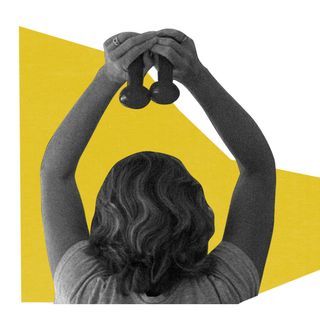A new study published on Monday in JAMA Network Open found that supportive social interactions, such as having a good listener, can keep cognitive decline at bay and improve brain health. Positive social interactions join the roster with physical exercise and mentally stimulating activities as one of the things that reduce both general age-related neurological decline and the risk of diseases such as Alzheimer’s, the study shows.
In other words, having a good listener in one’s life improves cognitive resilience — defined in the study as “the general capacity of cognitive processes to be less susceptible to differences in brain structure from age- and disease-related changes.”
“This study adds to growing evidence that people can take steps, either for themselves or the people they care about most,” said Dr. Joel Salinas, from the NYU Grossman School of Medicine and lead researcher of the study.
This would “increase the odds they’ll slow down cognitive aging or prevent the development of symptoms of Alzheimer’s disease — something that is all the more important given that we still don’t have a cure for the disease,” he added.
The study included more than 2,000 participants with an average age of 63 and assessed their self-reported scores on the availability of social and emotional support that includes love and affection, advice, and listening.
Significantly, the researchers found that in individuals in their 40s and 50s with low “listener availability”, every unit of decrease in brain volume is accompanied by a cognitive age that is four years higher than those in the same age with higher listener ability. Listener availability was measured using three factors: the number of children, family, and friends to whom participants felt close, the number they felt comfortable talking about private issues with and could call on for help, and the number of people they saw monthly.
Related on The Swaddle:
Increased Stress Hormone Levels Cause Cognitive Decline Linked To Alzheimer’s Disease
While it was known that general social support is good for brain health, the study distinguished among the types of social support and found that supportive listening, as a “specific subtype of social support,” is linked to greater cognitive resilience. The same link was not observed with other types of social support included within the study.
Moreover, the results corroborate the findings of a previous report that stated that people with a listener available with them were associated with a 33% lower dementia risk than those who didn’t.
The study suggests that relatively younger people should start taking stock of their social interactions before the age of 65 to take care of their cognitive health. The study’s authors recommended that physicians ask questions about social interactions, bearing in mind that loneliness is heavily associated with depression and other health conditions.
“These four years can be incredibly precious. Too often we think about how to protect our brain health when we’re much older after we’ve already lost a lot of time decades before to build and sustain brain-healthy habits,” Salinas said. “But today, right now, you can ask yourself if you truly have someone available to listen to you in a supportive way, and ask your loved ones the same. Taking that simple action sets the process in motion for you to ultimately have better odds of long-term brain health and the best quality of life you can have.”
Although there are challenges in expecting listening as a consistent form of social support — and in providing the same, particularly for neurodivergent people — the findings still throw light on the importance of cultivating a support system composed of different people who may be able to help at different times.
While researchers still don’t know the exact biological mechanisms at play that link cognitive aging and social interactions, the study cements the link between psychosocial factors and brain health. However, the limitations of the study include the fact that most participants were white, and that the evaluation of social support was based on self-reported information rather than objective assessments. Still, researchers suggest that the study’s findings call for neurological health strategies that are specifically targeted at promoting greater listener availability.




